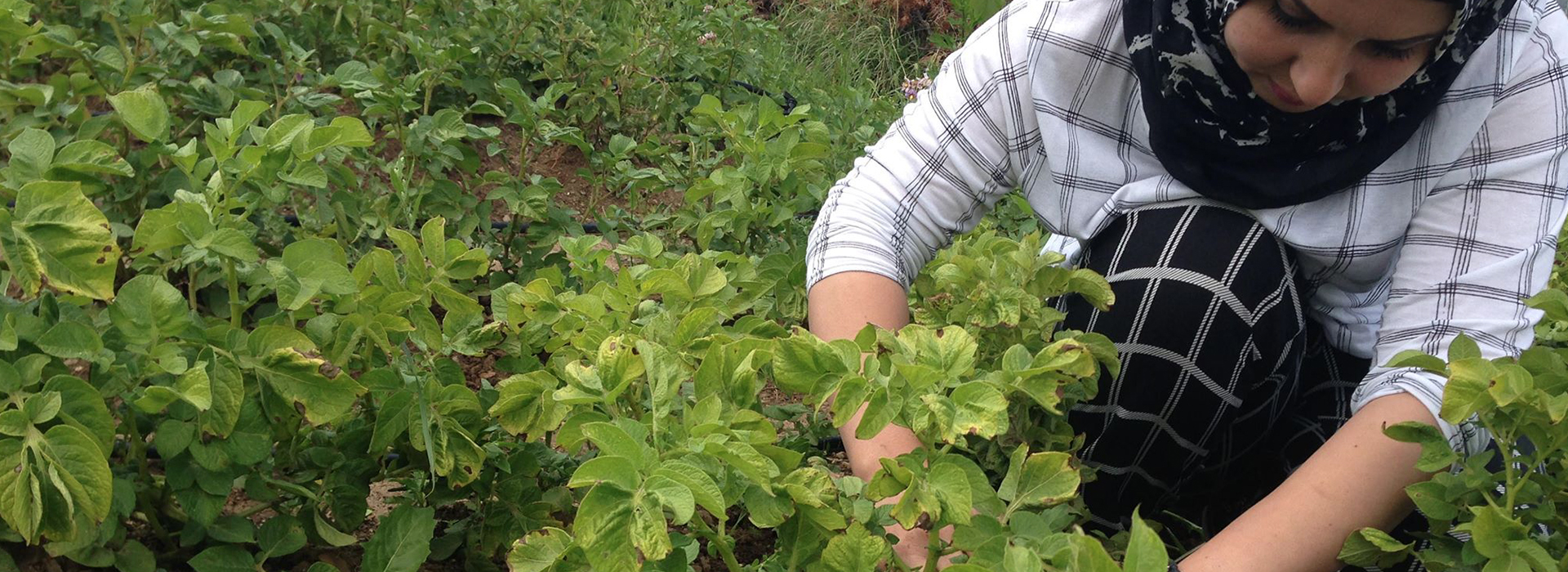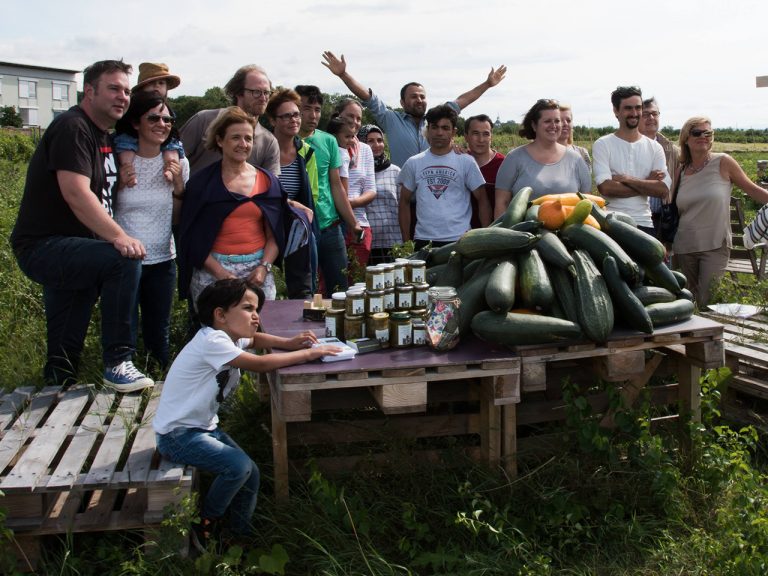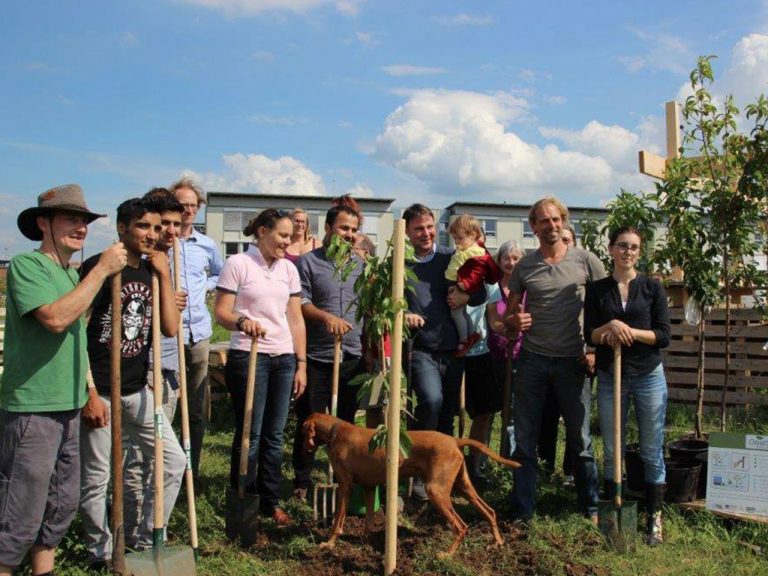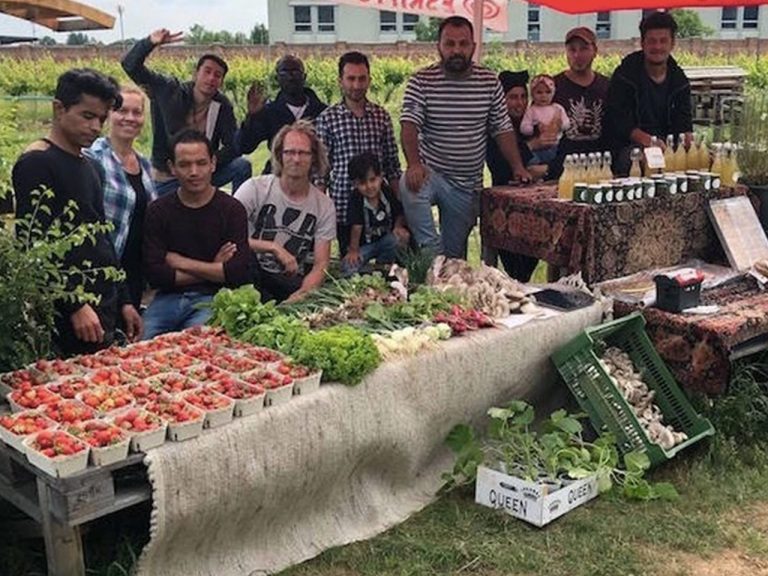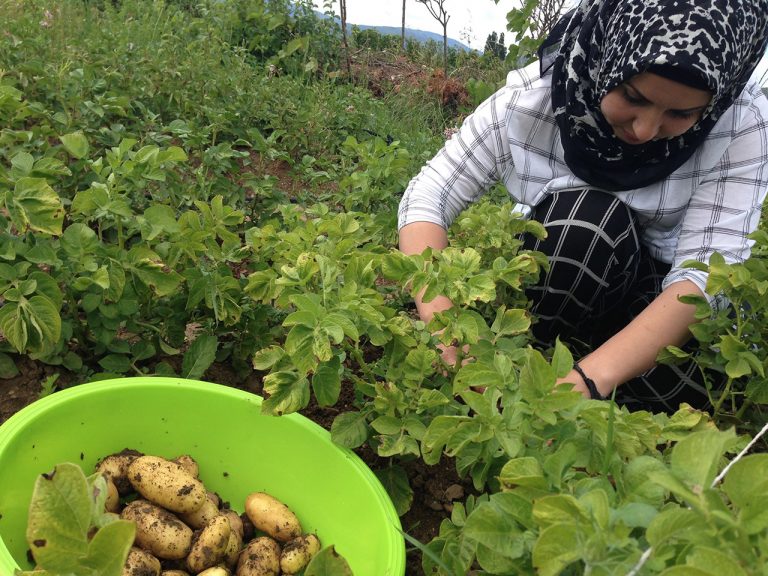Introduction
The ‘Garden of Encounter’ was founded in 2014 out of refugee empowerment activities in Traiskirchen, Lower Austria next to Austria’s largest first reception centre for asylum-seekers. The garden’s focus is to create a setting where inclusion can happen through various projects with the main goal to empower refugees so they can discover their abilities and get support to make those abilities visible through projects on an economic basis. Because most official job and soft skill training activities in Austria only start when refugees get their residence permit, this projects tries to show ways other communities can start activities at an earlier stage.
Besides gardening the group also sell vegetables locals and planted 150 fruit trees through a sponsorship model. They also started a sewing and a wood workshop and organise regular events like an oriental breakfast and started an atelier for refugees to work on their products and give them an opportunity to make them visible and to sell them.

 English
English  Deutsch
Deutsch  Español
Español  Svenska
Svenska 